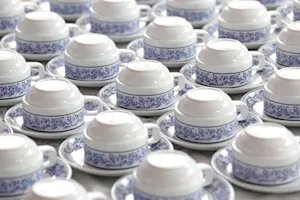What Makes This Word Tick
"Commodious" is a word that evokes a sense of spaciousness and comfort, perfectly suited to describe a generously sized living room or an inviting old armchair. It's all about giving things room to breathe—a quality we could all appreciate when shuffling around the crowded aisles at holiday sales.
If Commodious Were a Person…
If commodious were a person, they'd be your easy-going friend who always has enough chairs when everyone shows up unexpectedly for dinner. They’ve got a knack for making things work, finding space in the schedule for one more coffee catch-up or squeezing in one more guest at the table.
How This Word Has Changed Over Time
The word "commodious" hasn't wavered much from its original sense. Dating back to the 15th century, it's always been about comfort and suitability. In a world where words evolve rapidly, "commodious" remains steadfast, standing as spacious as the spaces it describes.
Old Sayings and Proverbs That Use Commodious
While "commodious" itself isn't front and center in classic sayings, the concept of creating room and comfort permeates timeless expressions like "Make yourself at home" and "There's always room for one more."
Surprising Facts About Commodious
Here's a little secret: "commodious" shares a root with "accommodate," the Latin "commodus," meaning "convenient." The next time you say "commodious," you're subtly nodding to life's little conveniences, which, let's face it, can make all the difference.
Out and About With This Word
You’re more likely to hear "commodious" in a property listing or an architect's portfolio than in day-to-day banter. It's the hallmark of elegant descriptions, elevating even the most prosaic advertisement to something resembling poetry.
Pop Culture Moments Where Commodious Was Used
While "commodious" might not headline in the latest blockbuster, you can practically hear it echoed in the lavish interiors of a James Bond film. Imagine a villain casually mentioning their "commodious lair" with a self-satisfied purr.
The Word in Literature
In literature, "commodious" finds a comfortable niche in works describing grand old estates or serene country manors. Think along the lines of Jane Austen’s estates or the sprawling settings in a Dickens novel, each room practically inviting characters to linger.
Moments in History with Commodious
Consider the grand salons of 18th-century France—spaces designed to foster conversation and culture, perfectly commodious in both size and intent. These were the cradles of enlightenment, offering roomy elegance with a focus on making guests feel comfortably at ease.
This Word Around the World
Around the world, the sentiment of "commodious" can be expressed in various ways—like the Japanese "iyashikei," which reflects comfort and healing spaces. Every culture values the idea, even if expressed differently, proving comfort is truly universal.
Where Does It Come From?
"Commodious" traces its origins to the Latin "commodus," a fitting etymology for a word that means exactly that—fitting, suitable, convenient. Over time, it made its way through Middle French before settling comfortably in English.
How People Misuse This Word
"Commodious" is sometimes mistaken for "commode," leading to some amusing misconceptions. Remember, calling your furniture "commodious" praises its spaciousness, not a resemblance to that handy bathroom item!
Words It’s Often Confused With
Comfortable: While related, "comfortable" focuses on the feeling, whereas "commodious" describes space.
Convenient: Often used interchangeably, but "commodious" leans more toward physical space than mere convenience.
Spacious: Synonyms, yes, but "commodious" carries a hint of elegance and suitability.
Additional Synonyms and Antonyms
Synonyms for "commodious" include roomy, spacious, and ample. Antonyms would be cramped, confined, and tight—none of which suggest a comfortable way to spend an afternoon!
Want to Try It Out in a Sentence?
"The commodious reading nook, with its large bay window, became her favorite retreat on rainy afternoons."
















